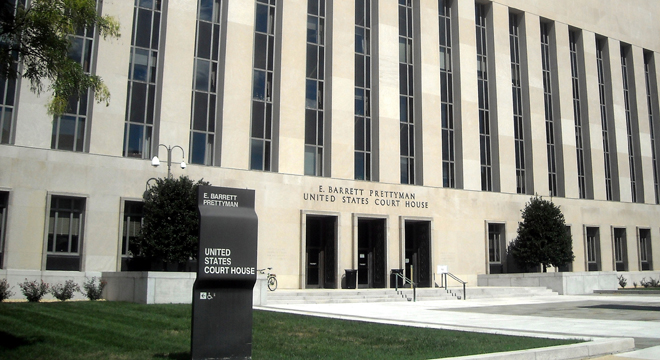The recent disclosure of top secret National Security Agency documents has sparked a debate over the trade offs involving secrecy and security when it comes to national security and intelligence. Part of the debate has to do with the oversight process — the structures built in to the system to regulate the government’s national security actions and capabilities.
Now, in turn, part of what makes the oversight process so hard to talk about is the fact that much of the process, too, is done in secret. Take, for example, the Foreign Intelligence Surveillance Court, the court the government has to get through to get warrants in national security investigations.
The FISC was established by Congress in 1978, out of provisions written into the Foreign Intelligence Surveillance Act (FISA), legislation which itself was a response in part to the findings of the Senate Select Committee to Study Governmental Operations with Respect to Intelligence Activities, also known as the Church Committee. Named after Sen. Frank Church (D-ID), the Church Committee, “detailed allegations of executive branch abuses of its authority to conduct domestic electronic surveillance in the interest of national security,” as the Federal Judicial Center puts it. The FISC was set up as a special court, and the Chief Justice of the United States was given the power to designate seven federal district court judges to review warrants related to national security investigations. (The Patriot Act increased the number of judges serving on the court to 11.)
Warrant applications submitted to the FISC are drafted by attorneys in the General Counsel’s Office at the National Security Agency, at the request of an officer from one of the federal intelligence agencies. According to the Federal Judicial Center, “each application must contain the Attorney General’s certification that the target of the proposed surveillance is either a ‘foreign power’ or ‘the agent of a foreign power’ and, in the case of a U.S. citizen or resident alien, that the target may be involved in the commission of a crime.”
The 11 judges that sit on the FISC rotate through one-week stints at the District Court building in Washington D.C., according to The Chicago Sun-Times.
The Sun-Times’ Lynn Sweet recently spoke with a former Justice Department attorney who worked on FISA-related matters and who gave Sweet a rundown on FISC procedures. Court personnel work in a secret room known in the intelligence community as a “SKIFF,” or Sensitive Compartmented Information Facility, a windowless room which may sometimes be filled with white noise to avoid eavesdropping. There, FISC judges review top secret applications from the intelligence agencies.
The FISC judges’ function has come under scrutiny in the wake of the leak of a top secret order — the first one ever to be seen publicly, according to NPR — issued by the court in April, requiring a Verizon subsidiary, Verizon Business Network Services, to turn over to the NSA the metadata about calls made by all its subscribers over a three-month period. Critics have called the court a rubber stamp for the government. According to an NPR report this week, the government submitted 1,856 applications to the court last year. The court approved every one.
But people familiar with the FISC told NPR that the story is not as simple as the top line numbers make it seem.
“I can tell you that that court has taken a wire brush to certain applications that have come before it,” Joel Brenner, a former inspector general of the National Security Agency, told NPR.”The idea that somehow they put their stamp on everything the government puts before them couldn’t be farther from the truth.”
But critics see it differently. Michael German, a senior policy counsel with the American Civil Liberties Union, told the radio network part of the problem is that the process is non-adversarial. Like the grand jury process, there are no defense attorneys appearing before the court to argue against the government.
“These are federal judges, and deserve some respect,” German said, speaking of the FISC. “But it’s the process that’s broken.”






